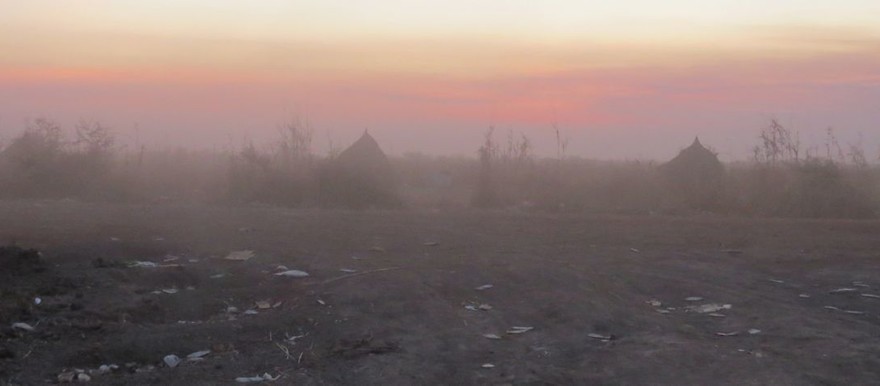Shortwave broadcaster Radio Tamazuj, which produces news and programmes for South Sudan and border areas of Sudan such as the Nuba Mountains and Blue Nile state, plans to double its airtime and increase news output starting 27 March.
The station, which has historically dedicated about half of its daily airtime to news coverage, plans to introduce additional programming focusing on peace-building, reconciliation, justice, political topics and local governance as well as programming for women and children.
In collaboration with other media houses, the station also aims to improve media access for war victims, widows, the war disabled and war wounded, orphans and others who have suffered through the ongoing civil war in South Sudan, according to a proposal shared by the station recently with the National Editors’ Forum in South Sudan.
Radio Tamazuj markets itself as a radio for “all communities,” according to its on-air branding. The station broadcasts in Arabic, using mutually intelligible dialects spoken widely in Sudan and South Sudan.
Starting from 27 March the station will air programmes from 6:30 to 7:30 on 11650 kHz on the 25 meter band and 9600 kHz on the 31 meter band, and 15150 kHz and 15550 kHz on the 19 meter band each evening from 17:30 to 18:30. This represents an increase from one hour daily airtime to two hours daily.
Radio Tamazuj is among the fastest growing radio stations in South Sudan, according to a survey carried out in five counties in 2015, which found that more than 20% of the station’s listeners were new listeners, more than any other station.
Another survey carried out the same year in the Malakal PoC found that about half of radio users listened to Radio Tamazuj, making it nearly as popular as the UN Radio Miraya, in spite of significantly shorter broadcast hours. Forcier Consulting, which carried out the survey, reported, “Those with access to a radio most commonly listen to Radio Miraya (74%) and Radio Tamazuj (49%).” This represented growth of more than 100% compared to a baseline survey done in August 2014, less than six months prior.
Radio Miraya is the country’s largest radio by listenership, owing to its wide network of FM repeaters, but shortwave radio is the only option for people in areas where FM coverage is limited or non-existent. In Raja County, for example, a survey carried out last year found that only 39% of people had even heard of Radio Miraya, compared to 59% for Radio Tamazuj.
Similarly, Forcier’s research in Leer County, where the popular Naath FM has been off-air for most of the last two years, showed that shortwave stations Radio Tamazuj and Voice of America were fall-back options for listeners in the conflict-stricken area. About one in five people were aware of Tamazuj, equivalent to about half of the Arabic-speaking population.
Radio Tamazuj’s upcoming expansion aims to serve listeners in such unreached places as well as provide an alternative to FM coverage in areas without independent radio stations. In Warrap State, for example, where the state-run Kuacjok FM reaches only parts of the state and functions only three hours per day, Radio Tamazuj will offer state-wide broadcast coverage and access to uncensored information.
Meanwhile, Forcier’s research report, which was made public earlier this week, shows a declining role for the state-run Radio Juba, with weekly listenership in Juba at only 17% compared to 23% in 2013.
By contrast, Eye Radio, which is based in Juba but also launched FM repeaters in several state capitals last year, showed strong growth in the FM market, with its weekly reach in Juba rising from 22% in 2013 to 48% in 2015. The radio’s parent organization Eye Media this week also launched a trial issue of a new newspaper, The Eye (pictured below), which was distributed free of charge.
Other new newspapers to appear in Juba this past month include Daily Vision newspaper and Dawn Arabic newspaper, which is financially backed by South Sudan’s National Security Service, according to a media source in Juba.



